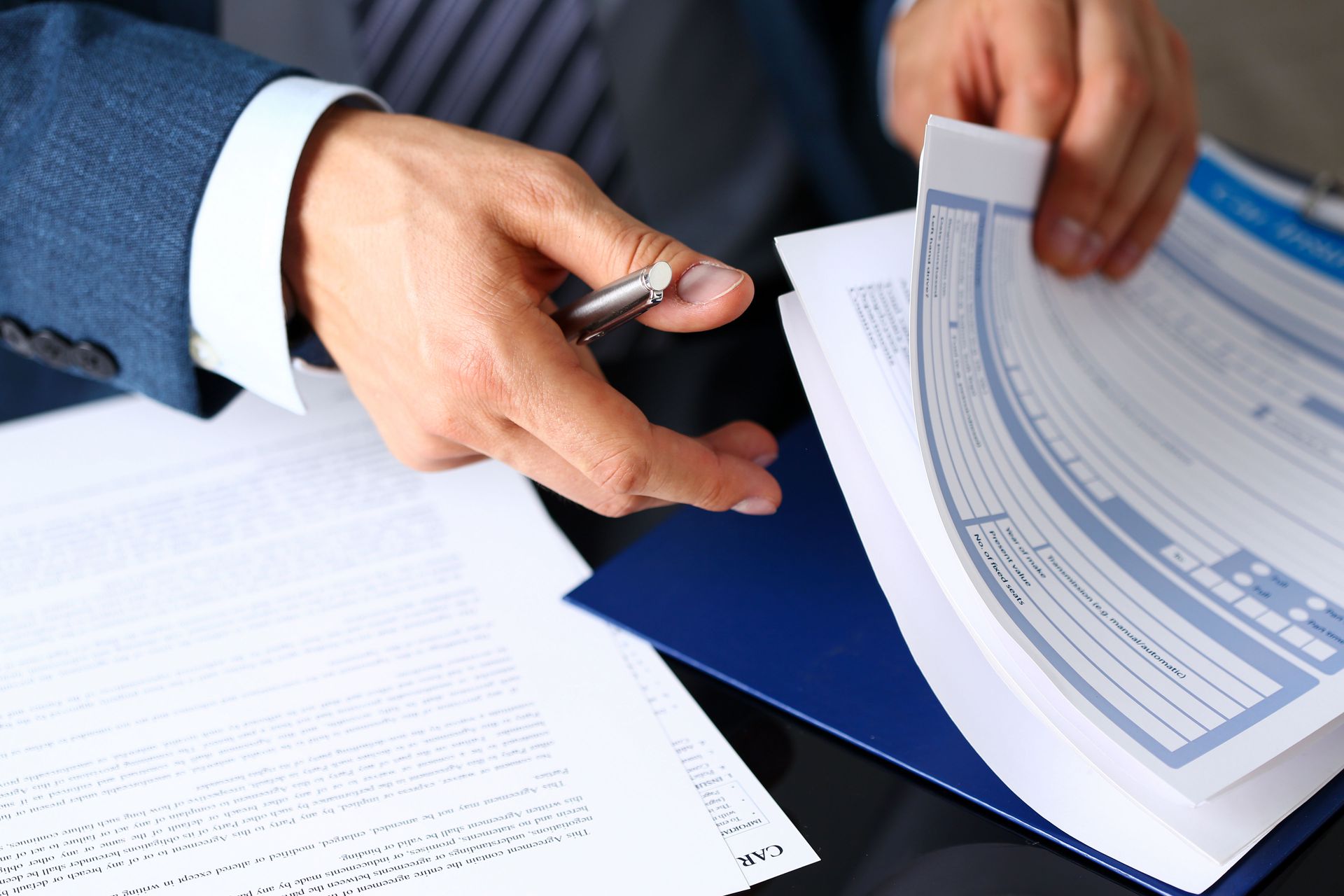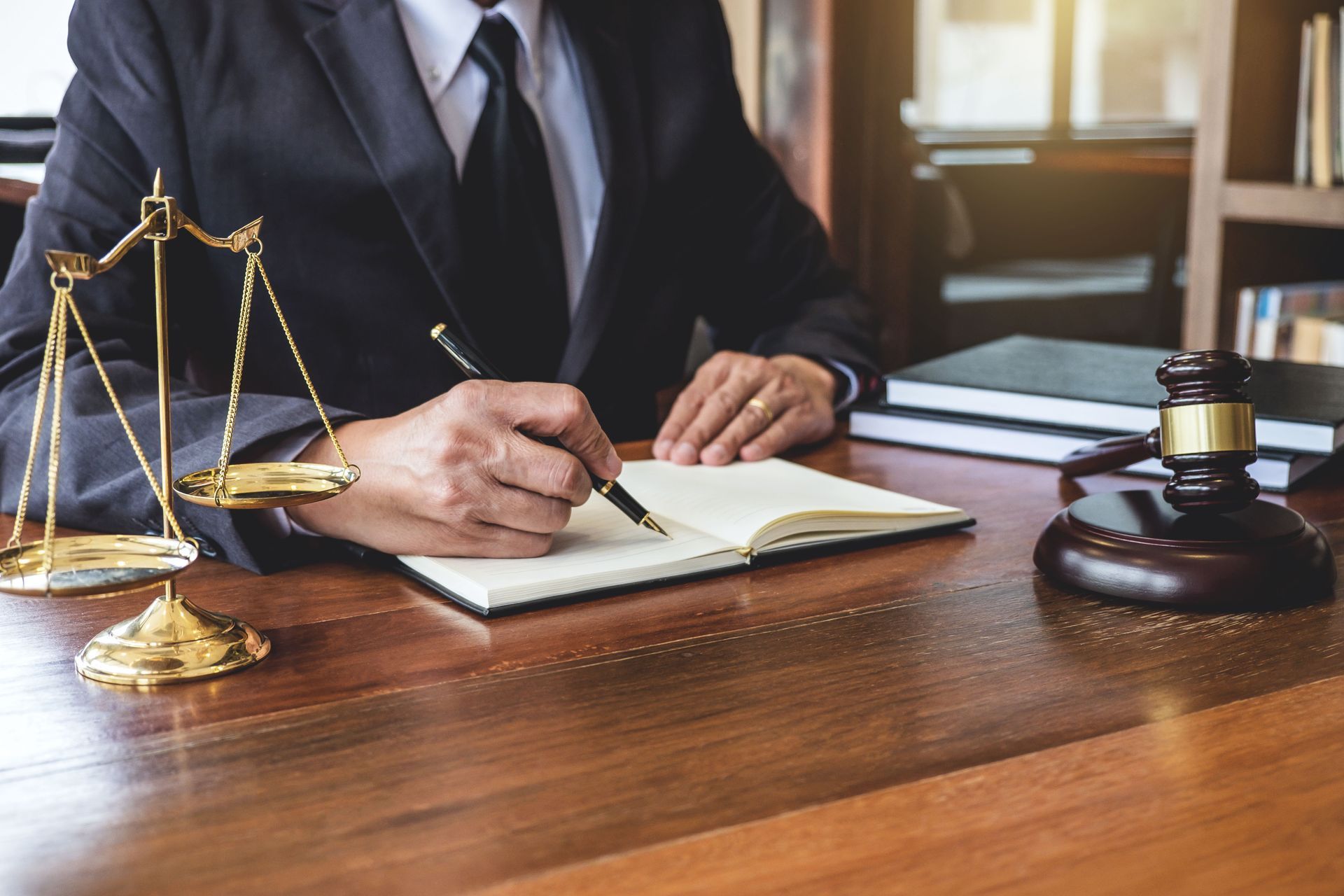1-76-BROWNING
SERVING THE STATE OF IDAHO AND SURROUNDING AREAS
Se Habla Español
How Does an Injury Lawyer Get You the Compensation You Deserve?
Personal injury cases can be complex and daunting, often leaving victims unsure of how to proceed. Understanding how an injury lawyer can guide you through the legal process is crucial to securing the compensation you deserve. This article explores the strategies used by personal injury lawyers to advocate for their clients, shedding light on each step involved. From initial consultation to trial representation, this breakdown provides insight into the critical role of an injury lawyer. Whether you're dealing with a car accident, medical malpractice, or a slip-and-fall incident, knowing the systematic approach a lawyer takes can bring you the clarity and confidence needed to move forward.
1. Initial Consultation and Case Evaluation
The initial consultation is the foundation of any personal injury case. During this meeting, the lawyer gathers key details about the incident, your injuries, and the financial or emotional impact you've experienced. The consultation also allows you to gauge the lawyer's expertise and approach to handling cases like yours. This initial session is crucial, as it sets the stage for the entire legal process.
Early evidence collection begins here as well, with the lawyer obtaining essential documents like medical records, injury photos, and police reports. This preliminary evidence is vital for assessing the strength of your case and determining the next steps. By compiling this information early, the lawyer can proceed seamlessly into the more detailed phases of the investigation.
A crucial part of case evaluation is assessing potential damages. Compensation can extend beyond medical bills to include lost wages, emotional distress, and future rehabilitation costs. The lawyer will carefully review all aspects of your life affected by the injury to determine a fair compensation package. This thorough evaluation is essential for negotiations and courtroom representation.
2. Investigation and Evidence Collection
Securing strong evidence is a critical phase in any personal injury case. Medical records are often the backbone of an injury claim, as they document your injuries, treatments, and overall health prognosis. This documentation is essential for proving the severity of your injuries and their correlation to the incident.
Witness statements can add significant weight to your case. These statements provide first-hand accounts of the event, helping to corroborate your version of events. The lawyer will interview witnesses and document their statements thoroughly. Witness testimonies often play a key role in negotiations and court proceedings, especially in disputed cases.
Police and incident reports provide an official record of the incident and often include initial observations and statements. These reports serve as crucial evidence, helping the lawyer cross-reference information and strengthen your case's factual foundation. A careful analysis of these reports reduces discrepancies and fortifies your argument, making it harder for the defense to refute your claims.
3. Building a Strong Case
The development of a legal strategy is where the lawyer's expertise truly shines. By analyzing all aspects of your case, the lawyer can devise a customized approach to maximize your chances of success. This strategy covers various areas such as negotiations, legal document drafting, and trial preparation. With a solid plan in place, the lawyer can efficiently manage the case and anticipate the opposing side's moves.
A clear timeline of events is also critical for structuring your case. This timeline includes the incident leading to your injury, subsequent treatments, and rehabilitation efforts. Organizing the case chronologically helps the lawyer present a cohesive narrative that is easy for judges and jurors to follow. This logical flow is essential for making your case clear and compelling.
Preparing for multiple scenarios is an essential component of any legal strategy. The lawyer anticipates potential outcomes, including negotiations, mediation, and even trial, and prepares accordingly. This readiness extends to rehearsing depositions, cross-examinations, and mock trials to foresee potential challenges. This thorough preparation can be invaluable in building your confidence and securing a favorable outcome.
4. Negotiating With Insurance Companies
Negotiation is a significant part of most personal injury cases, particularly when dealing with insurance companies. Injury lawyers must be well-versed in insurance policies and coverages to negotiate effectively. Insurance companies have their strategies to minimize payout, so understanding their tactics is essential. The lawyer reviews your policy, the defendant's coverage, and relevant laws to form a negotiation strategy that maximizes your entitlement.
One of the key roles of an injury lawyer is to reject lowball offers. By carefully analyzing each offer against your case's comprehensive damages, they ensure that any settlement proposal adequately covers your expenses and losses. This step is essential, as accepting a low offer could significantly impact your financial stability long term. Recognizing lowball offers allows the lawyer to push for fair compensation.
Negotiating a fair settlement often requires multiple rounds of discussions. According to NOLO, 67% of personal injury cases end in a settlement, highlighting the importance of this stage. A fair settlement can help you recover without the prolonged stress of a trial. The lawyer's negotiation skills play a pivotal role in achieving a satisfactory resolution.
5. Filing a Lawsuit and Pre-Trial Processes
If negotiations fail to yield a fair settlement, the next step is to file a lawsuit. This involves drafting a formal complaint and filing the necessary documents to initiate court proceedings. Accuracy is essential at this stage to avoid delays or dismissals. Filing a lawsuit signals your commitment to seeking justice, compelling the defendant to take your case seriously.
The discovery phase follows, during which both parties exchange relevant information, including documents, interrogatories, and depositions. This process enables the lawyer to gather insights into the defendant's case while reinforcing your own. Effective use of discovery can uncover critical evidence or inconsistencies in the opposing side's claims. This stage is vital for thorough case preparation, whether for a settlement or a potential trial.
Before going to trial, many courts require mediation or settlement conferences, where a neutral third party facilitates discussions. The lawyer will prepare you for these meetings and strategize how to present your case to the mediator. Mediation can often result in a fair settlement, sparing you from the uncertainties of a trial. Effective preparation for these sessions can lead to a satisfactory resolution outside the courtroom.
6. Litigation and Trial Representation
If a trial becomes necessary, the lawyer's role in the courtroom is indispensable. The jury selection process, or voir dire, is a crucial initial step. During this process, the lawyer screens potential jurors for biases or preconceptions that could impact your case. By selecting sympathetic jurors, the lawyer lays the groundwork for a fair evaluation of the evidence.
The trial begins with opening statements, where the lawyer outlines the case, explaining what they aim to prove and how. This introduction is designed to engage the jury and set the tone for the trial. A compelling opening statement can significantly influence the jury's perception of the case from the start, helping to establish credibility.
Presenting evidence and witnesses is the core of any trial. The lawyer introduces medical records, expert testimonies, and other relevant documents to substantiate your claim. Witnesses provide first-hand accounts, supporting your case with their testimonies. The lawyer ensures that all evidence is presented clearly and persuasively, strengthening your case in the eyes of the jury.
Closing arguments are the final opportunity to persuade the jury. The lawyer synthesizes all the evidence and testimonies, reinforcing their arguments and addressing any lingering doubts. After closing arguments, the lawyer also assists with jury instructions, which guide jurors in applying the law to their case. Effective closing arguments and clear jury instructions can have a significant impact on the trial's outcome.
By understanding the steps involved, you can appreciate the value these professionals bring to your personal injury case. This detailed process is aimed at achieving justice and providing you with the resources needed to recover and move forward. If you need an injury lawyer, contact Browning Law today!
VISIT US
HOURS
HOURS
Closed 12:00 pm - 1:00 pm for Lunch











Share On: